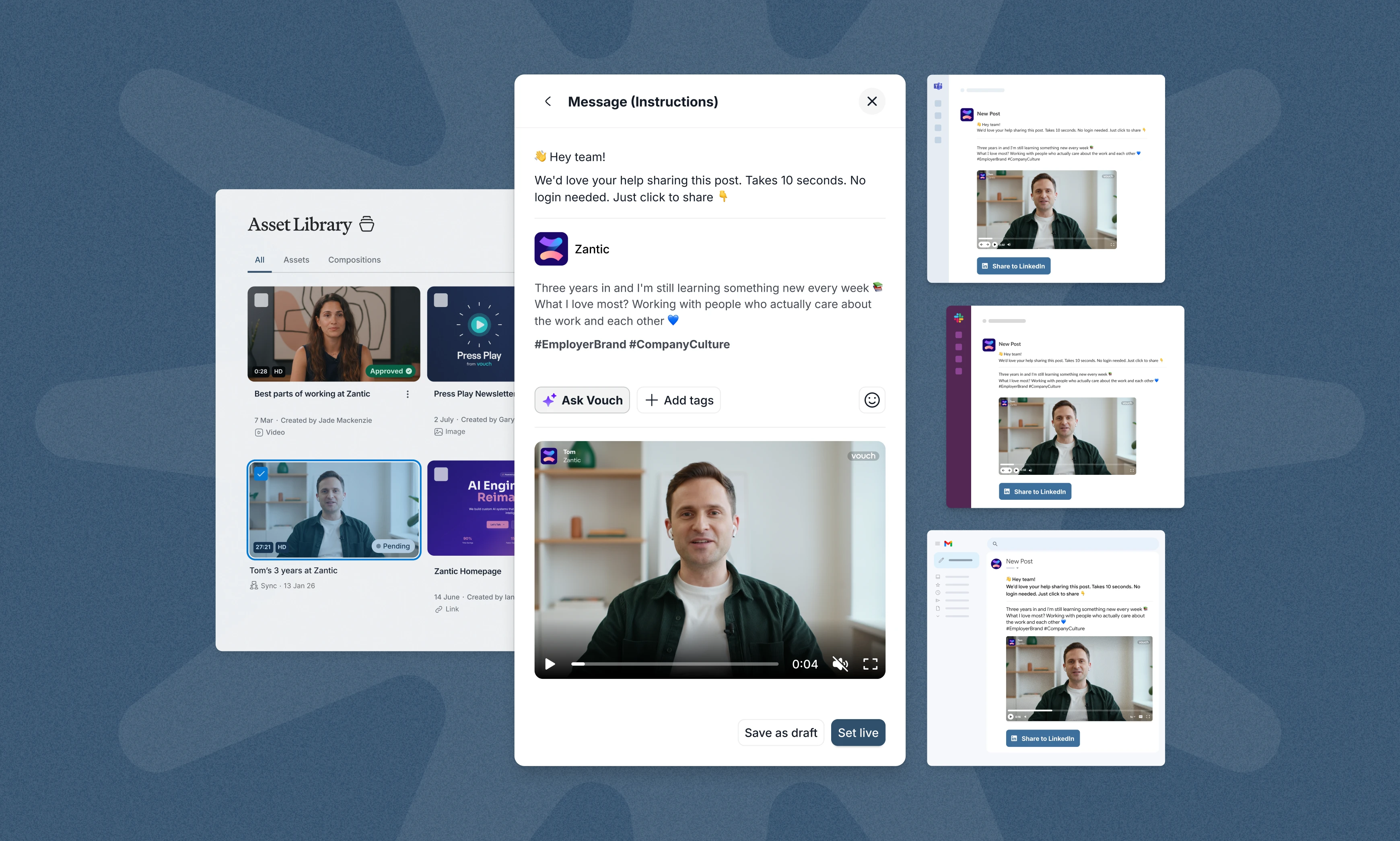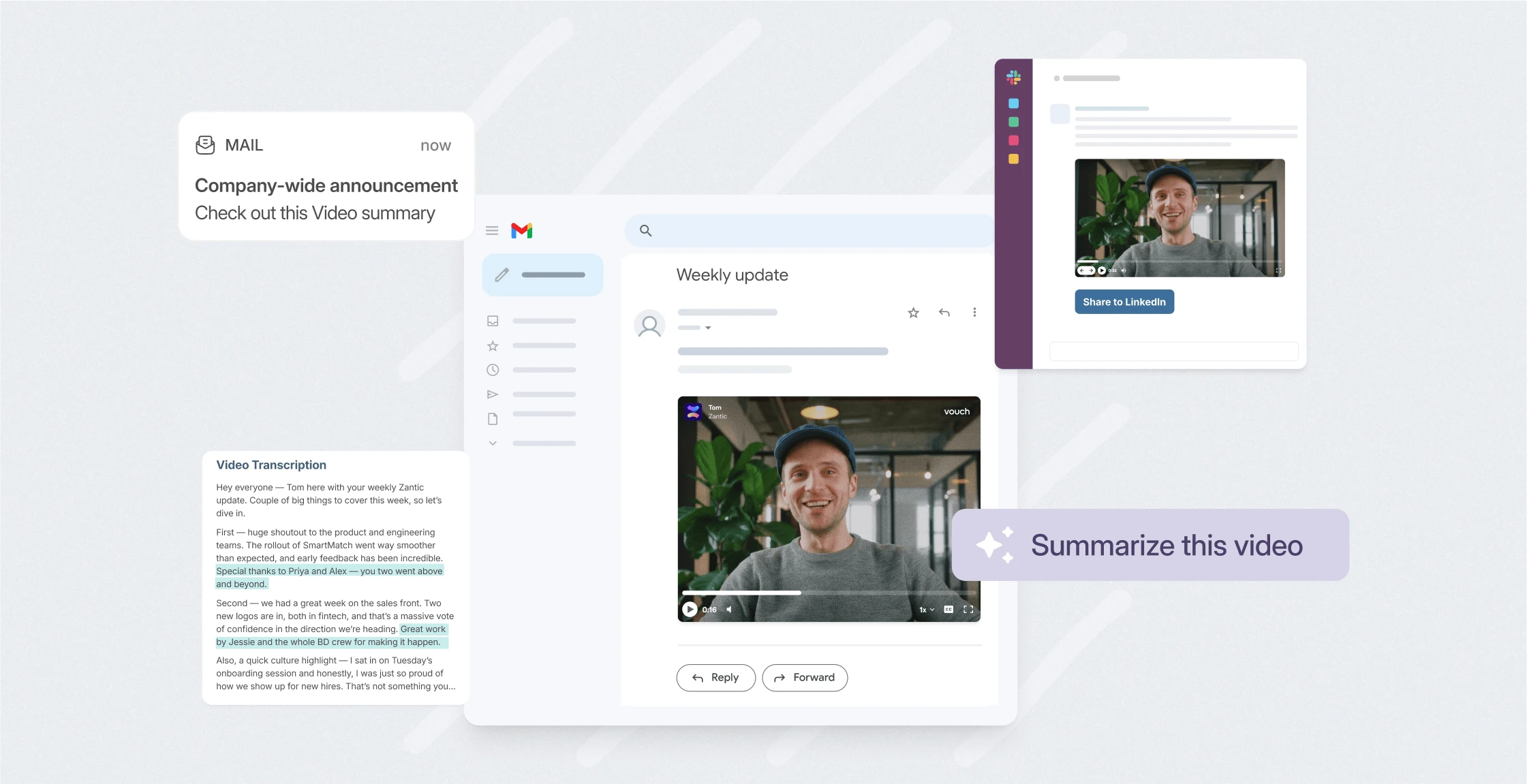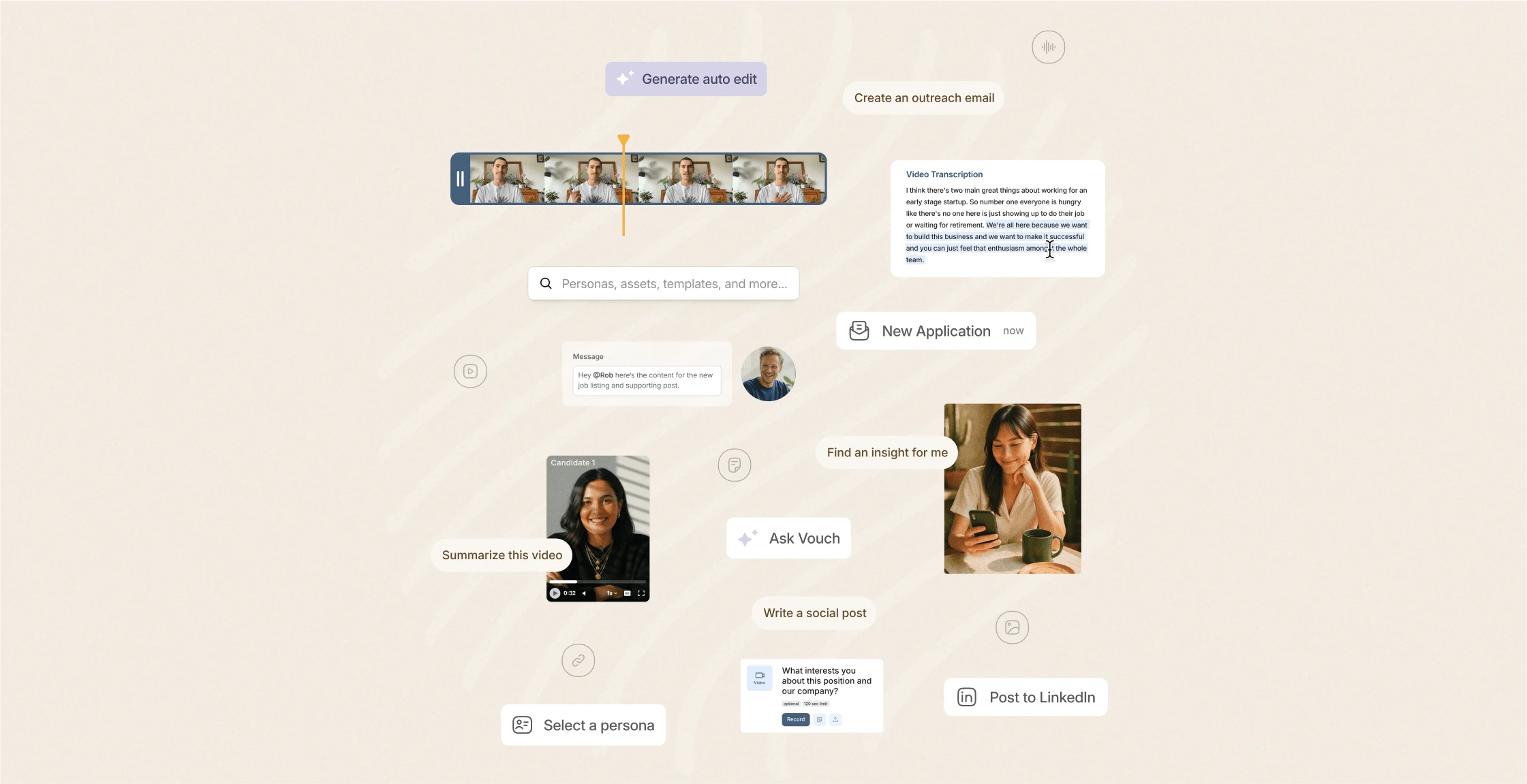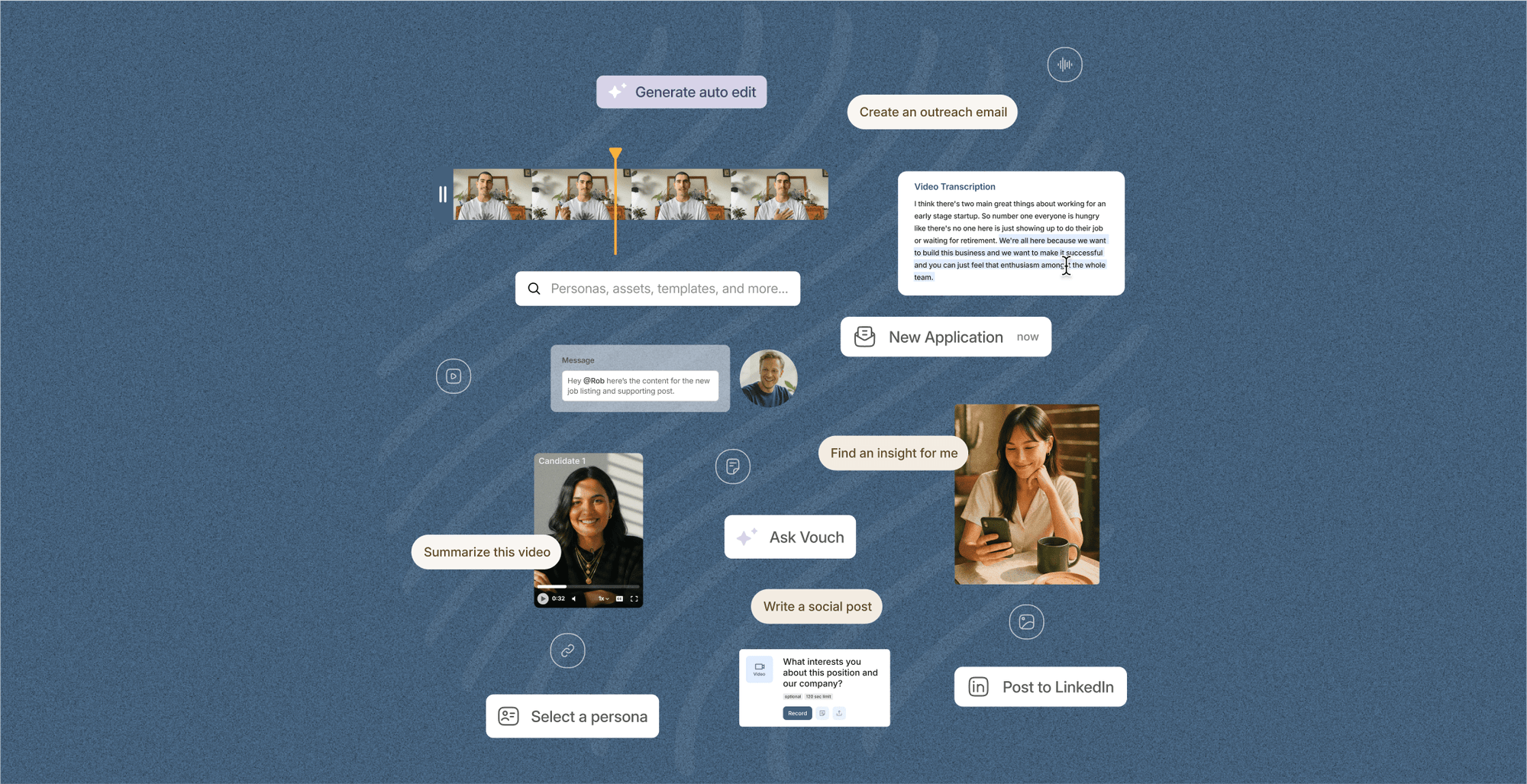Employer branding is a crucial element in attracting top talent to your company.
Your employer brand is the "reputation your company has" in the marketplace. It is a major factor in attracting top talent to your business, including your current open positions.
But who is responsible for cultivating and managing your employer brand?
Is Employer Branding Marketing or HR driven?
Let's explore the roles of marketing and HR in employer branding and how they work together to create a strong employer brand strategy to support your recruitment process and attract the ideal candidates.
What Is Your Employer Brand?
Your employer brand is the reputation your company has in the market, which helps you attract future employees. It is how people perceive your organization from the outside, including current and previous employees.
Your employer brand encompasses the thoughts, feelings, and opinions of individuals regarding what it's like to work for your unique company; it is all about telling employee stories the right way, like with video.
It goes beyond just the company's products or services and focuses on the internal culture and employee experience. And that's why, when we talk about "Is Employer Branding Marketing or HR driven?" We need to consider it across both disciplines - and, indeed, your entire company.
The AI-enabled workspace for talent teams.
- Unified workspace for talent teams
- Accelerate hiring with AI tools
- Auto-generate polished hiring and employer brand content
- Easily repurpose assets across all channel
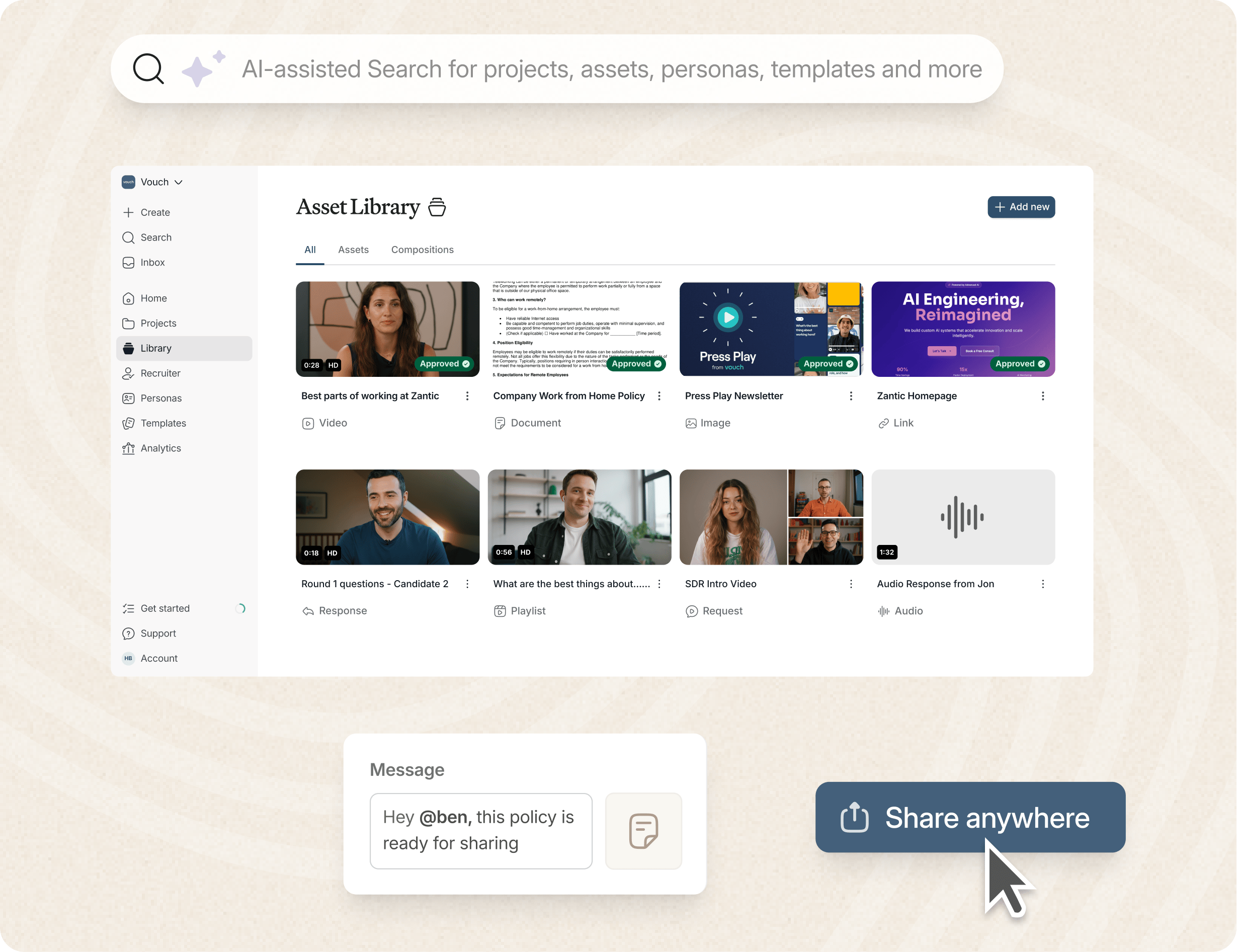
How are Employer Branding and Workplace Culture Connected?
Before getting into specific roles, it's good to know that aiming for a good employee brand is about creating a workplace culture that puts your employees at the forefront, which is the task of your entire company.
Technically, putting employees first includes building your employee value proposition for your current and potential employees, with reasons they should want to work at your company, not a competitor. It's about creating a positive perception of working for the organization and highlighting the benefits and opportunities available.
By cultivating a strong brand, companies can attract top talent that may otherwise be out of reach. Job seekers are more likely to be drawn to organizations with a positive reputation, as it signals a desirable workplace and culture. Additionally, a good company's reputation helps organizations differentiate themselves from their competitors and create a unique identity in the market.
How do I Build my Employer Brand?
Building an employer brand is a crucial process that requires time and effort. At Vouch, we're consistently working on our EB across Facebook, Instagram, LinkedIn and Twitter!
It involves creating a compelling employee value proposition (EVP) that attracts potential employees to your organization.
When developing your brand, consider what sets your company apart and why someone would want to work for you. Highlight your unique culture, benefits, and opportunities for growth.
Building your brand is a topic in itself, so please see our "What is Employer Brand" guide, which includes neat industry tips and tricks by the Vouch team to get your employer brand on track.
Is Employer Branding Marketing or HR? Again, it's both!
What is the Role of Marketing and HR in Employer Branding in 2026?
Both marketing and HR play crucial roles in building and maintaining a compelling employer brand. Marketing is responsible for delivering consistent brand messages that align with the organization's values and culture.
Marketing professionals should have a deep understanding of the company's brand and how it should be communicated to potential and current customers and employees.
HR professionals, on the other hand, focus on the recruitment process and set policies. To break it down a little further:
Marketing's Role:
- Crafting the company's brand message
- Managing social media presence
- Designing engaging content and campaigns
- Showcasing company culture through storytelling
HR's Role:
- Identifying key employee value propositions
- Enhancing the candidate experience
- Facilitating internal communication and engagement
- Aligning branding with recruitment strategies
Does a Talent Acquisition Specialist remove HR and Marketing?
Even with a Talent Acquisition Specialist steering the ship, collaboration between the entire company, including marketing and HR, is vital to successfully developing and implementing an effective branding strategy.
Recruitment marketing channels can include company websites, social media platforms, and internal communication platforms. Additionally, storytelling plays a vital role in conveying the employer's brand. By sharing authentic stories about the company's culture and the experiences of its employees, marketing, and HR can create a compelling narrative that attracts and engages talent.
Developing your Employee Value Proposition (EVP)
Your Employee Value Proposition is the unique set of benefits and values that your organization offers to employees. It is what sets you apart from other companies and makes you an attractive choice. When developing your value proposition, consider the following high-level questions:
"What do we offer that others don't?"
"What benefits and perks do we provide?"
"What is our company culture like?"
"What growth opportunities do we offer?"
"What is our mission and purpose?"
Answering these questions will help you craft a compelling value proposition that resonates with potential employees. If you would like to learn more, please see our Employee Value Propositions Tips & Examples.
Should I Be Measuring Employee and Candidate Satisfaction?
Absolutely, and this is where your Marketing team can really shine with their analytics skillsets. Regularly measuring employee satisfaction and engagement is crucial to building an employer brand, and this can be done through surveys employee and feedback sessions using video or one-on-one meetings.
Understanding your employees' needs and preferences will help you identify areas for improvement and implement changes that contribute to a positive company reputation.
Some key metrics to measure employee satisfaction and engagement include:
- Overall job satisfaction
- Perception of company culture
- Opportunities for growth and development
- Work-life balance
- Manager support and communication
FAQs
Is employer branding marketing or HR driven?
Employer branding is not just an HR or marketing function, it's both. An effective employer branding strategy is a joint effort between HR communication and brand marketing teams. While HR focuses on employee branding, recruitment policy, and aligning the employer value proposition with real employee experiences - HR marketing and recruitment marketers leverage content marketing, inbound marketing, and social media engagement to amplify your brand on career pages, social networks, and the talent marketplace.
Is employer branding focused more on recruiting or workforce development?
Employer branding supports both recruiting and your workforce development, but its impact begins in recruitment and extends through the entire employee lifecycle. It enhances recruitment efforts by aligning job ads with your employer brand platform, while also supporting career development, diversity initiatives, and long-term employee retention. The best strategies link recruitment marketing and employee engagement, reflecting a culture of remote work, diversity, equity, and inclusion, and a healthy work environment. Whether you're reducing time to hire or investing in leadership pipelines, employer branding supports both sides of the employee equation.
Who is responsible for employer branding?
Responsibility for employment branding strategy is shared across the business. HR specialists, recruitment marketers, and employer branding agencies work together to design and manage the employer brand. Meanwhile, marketing automation, strategic projects, and data-driven tools like generative AI support scalable content creation. Leaders ensure brand management, recruiters build candidate profiles, and employees provide employee testimonials that bring authenticity to the message. To succeed, employer branding needs company-wide support, from leadership to front-line employees.
Why is employer branding important in organizations?
A strong employer branding strategy improves your organization’s ability to compete in a crowded labor market. It enhances employee retention, lowers cost per click on job ads, and increases key performance indicators like application rates and offer acceptances. It also strengthens your work culture, drives employee engagement, and reinforces your diversity and inclusion goals. Through consistent messaging on career pages, Glassdoor reviews, and social networks, companies can influence candidate perception and showcase their commitment to social responsibility, career development, and a positive work environment.
What is the role of marketing and HR in employer branding?
Marketing and HR must collaborate for a truly effective employer branding strategy. HR brings expertise in recruitment policy, diversity initiatives, and the actual employee experience, while marketing ensures brand consistency and strategic use of channels like career pages, job ads, and social media engagement. HR provides the substance (your values, EVP, and culture), and marketing delivers the story - amplified through content marketing, brand management, and wider branding strategies.
How does employer branding impact recruitment on job websites such as LinkedIn?
On platforms like LinkedIn, employer branding directly influences how candidate profiles are created and how candidate perception is formed. A strong presence, including branded job ads, optimized career pages, and content aligned with the 4 P’s of Employer Branding - can increase reach and reduce time to hire. Featuring employee testimonials, highlighting diversity and inclusion, and posting real insights into your work culture makes your brand more relatable in the talent marketplace. Integration with marketing automation tools ensures content stays fresh and consistent across platforms.
How can a marketing-driven approach enhance employer branding?
A marketing-driven approach brings structure and strategy to your employment branding strategy by applying techniques from brand marketing and content marketing. It enables better targeting of candidate personas, creates engaging career pages, and uses data tools like social listening or Google Alerts to optimize content based on public perception. Marketing also supports storytelling around key values, like diversity, equity, and inclusion, Remote Work, or even innovative policies like a 4-Day Workweek. This approach ensures you attract the right candidates while reinforcing brand consistency across every touchpoint.
Conclusion
Is Employer Branding Marketing or HR? It's both and should even be company-wide.
Employer branding is a crucial aspect of any organization's brand strategy. Collaboration between the marketing and HR teams is required to create a strong company reputation and image that attracts and retains top talent.
By working together, these two functions can create a unified strategy that effectively communicates your employer brand and improves your hiring process and cost per hire. You can also leverage tools like Vouch video on your social media channels to build trust and reach qualified candidates.
Like to try Vouch?
Loved by companies like Canva, Nike, Cisco, HubSpot, Amazon, and more, tools like Vouch make leveraging video in your business remarkably easy.
Be sure to book a Vouch demo today and chat with a video content expert.
You might also like

Elevate Your Brand Today With Vouch
Discover how Vouch can accelerate talent acquisition while helping you stay on-brand.

